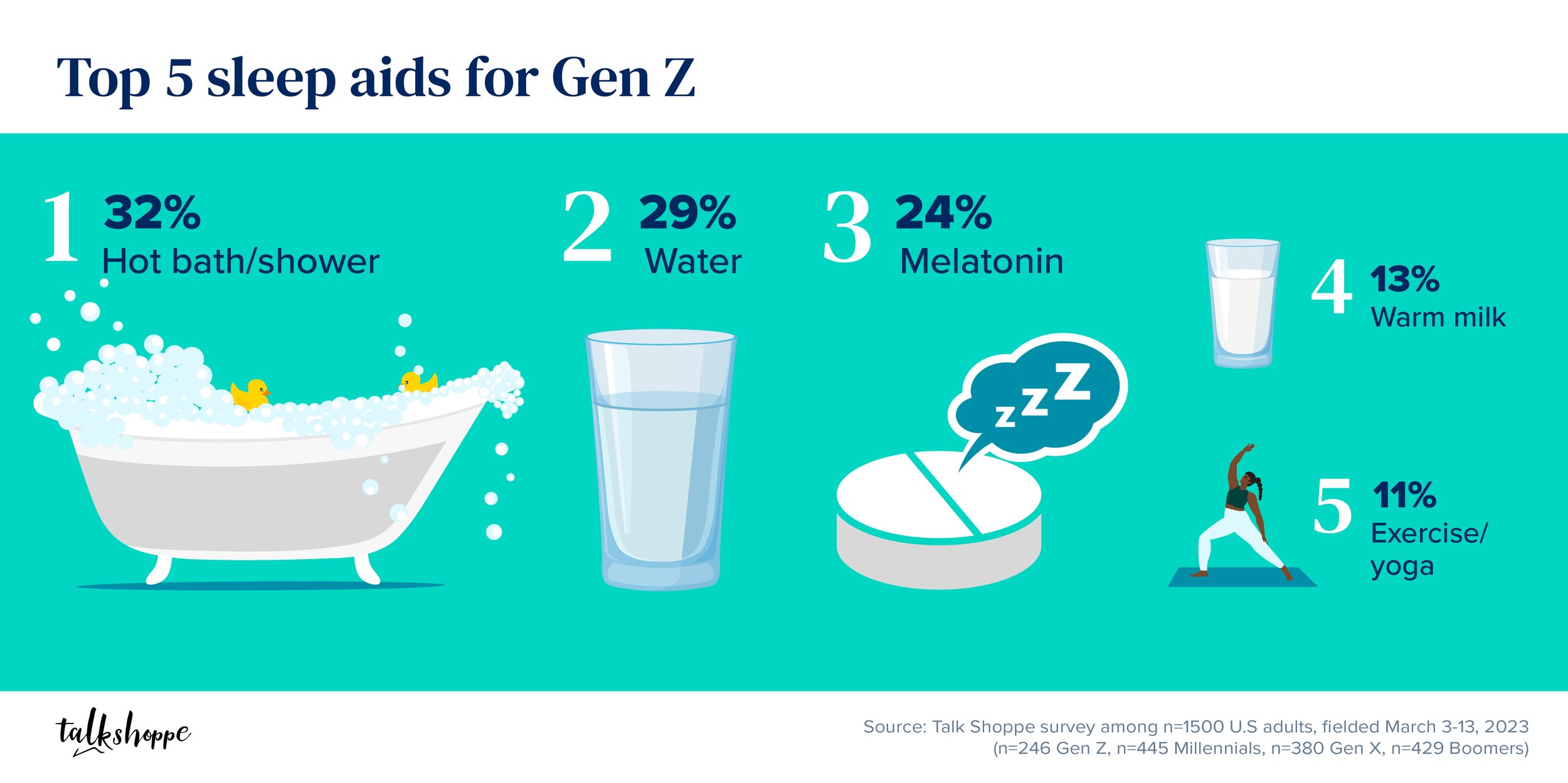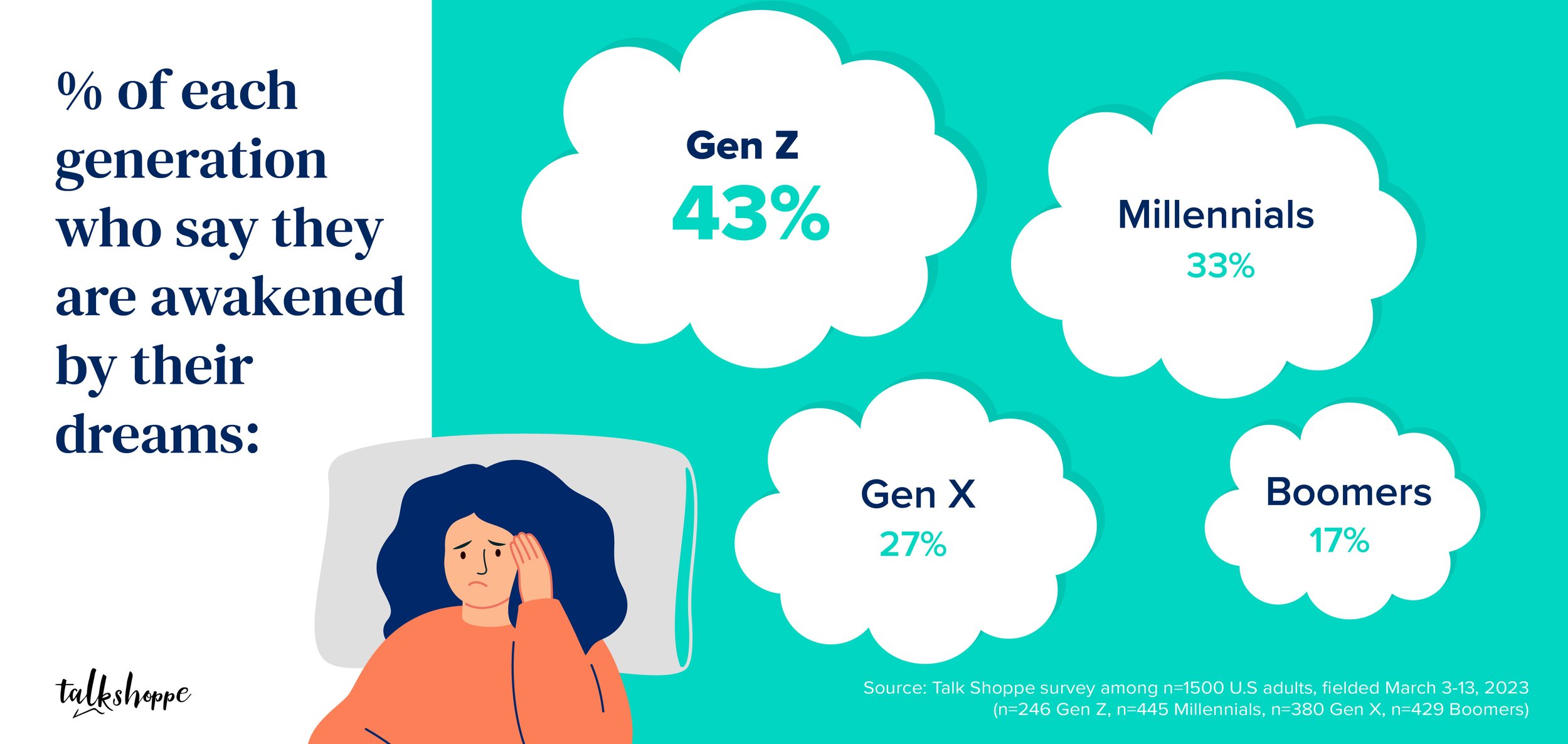Sleep & Gen Z
Previous installments of our ‘The State of Sleep’ series have shown that the struggle is real for a majority of U.S adults when it comes to catching those zees. But one generation in particular - Gen Z, or those between the ages of 18 and 26 - stands out in particular as the most sleepless generation.
But is it just because they are young, with a knack for keeping the party going well into the night? Or are there other variables in play? Let’s find out…
A generation of night owls: two-thirds (67%) of Gen Z refer to themselves as ‘night owls’, a significantly higher proportion than all other generations.
Gen Z are more likely to see lack of sleep as a status symbol: nearly a third (28%) of Gen Z adults say they get further ahead in life because they sleep less than others, and 1-in-3 take pride in the fact that they do not need as much sleep as others. As we’ll see later on, this generation’s mantra of 'sleep less, do more' echoes throughout their sleep routines and habits, reflecting a constant desire to be “on”.
Insomnia is more widespread among Gen Z: over a third (35%) of this generation say they suffer from insomnia, significantly higher than Millennials (28%), Gen X (26%), and Boomers (18%). But insomnia due to what? One culprit can be stress and worries, which afflicts nearly half (49%) of Gen Z when they are trying to fall asleep. When asked what things worry them, the number one answer is family stress, such as a recent move, marriage, death, divorce, etc.
The bedtime routine of Gen Z can be summarized with Three S’s: Screens, Social media, and Smoke.
Gen Z is the generation that is most likely to bring a screen to bed: the vast majority of them - 71%, to be exact - say they use a device with a screen in bed often or all the time. This habit is significantly more pronounced amongst Gen Z compared to Millennials (63%), Gen X (44%), and Baby Boomers (28%).
So what are they doing on their screens? Mostly unwinding while scrolling through social media: 54% of Gen Z say they check social media as a way to unwind before bed, significantly more than all other generations. Over 4-in-10 (44%) say they play mobile video games.
Instagram, YouTube, and TikTok are the platforms that keep Gen Z up: nearly 6-in-10 (56%) Gen Zers say they scroll through Instagram before bed, followed by YouTube (52%) and TikTok (47%).
Puffin’ into the land of nod: just over 1-in-4 (26%) Gen Z adults smoke as a way to unwind before bed. While smoking is not a leading activity before heading to bed among this generation, it is definitely a more widespread activity when compared to Millennials (21%), Gen X (13%), and Baby Boomers (7%).
Gen Z is more likely to be lulled to sleep by music: half of Gen Z listens to music as a way to unwind before bed, more than all other generations. The most popular genres for falling asleep among this generation are hip hop and R&B.
Gen Z are particularly hydrated when they go to bed: they’ve been called the “most hydrated generation”, and it appears that this healthy daily habit continues until bedtime. Nearly a third (29%) of Gen Z say they drink water as a sleep aid, significantly more than all other generations. Other more natural aids are also embraced by Gen Z, such as melatonin, which is taken by nearly 1-in-4 (24%) of them, as well as warm milk and exercise or yoga.
Dreams, that intricate tapestry of the subconscious mind that has fascinated people for millennia, have a more vivid hold on Gen Z.
Living the dream, literally: a striking 43% of Gen Z adults recount being awakened by their dreams, more than any other generation. Night terrors, too, haunt the sleep of over 1-in-10 (12%) Gen Z adults, leaving a trail of unease in the midst of their nighttime adventures. Here’s an idea: maybe they shouldn’t watch scary stuff right before they try to sleep! Nearly 4-in-10 (36%) Gen Z adults say they watch horror movies or TV shows before they go to bed.
Gen Z appear to be more open to new sleep techniques and hacks, and products that can lessen sensorial hurdles for falling asleep. This represents an opportunity for brands in this space - or those looking to enter it somehow - to engage with the coveted demographic.
Gen Z wants to find ways to sleep better: nearly 8-in-10 (76%) of them say that getting better sleep is one of their New Year’s resolutions, significantly more than all other generations.
Sensorial hurdles - bothersome light and sound - are keeping up Gen Z more: virtually half (48%) of Gen Z adults say that some form of light or sound keeps them from falling asleep, more than other generations. The specific things bothering this group are bright lights or lights outside their window (22%), noise from neighbors or other family members (21%), and push notifications on their phones (18%).
Gen Z has embraced sleep trackers more than others: nearly 1-in-5 (19%) Gen Z adults say they use a sleep tracker, on par with the slightly older Millennials (20%). Both generations outpace Gen X and Boomers in adopting the technology. Interestingly, Gen Z is more likely to use their Apple Watch as a sleep tracker than the Fitbit, which is more popular among older sleep tracker users.






